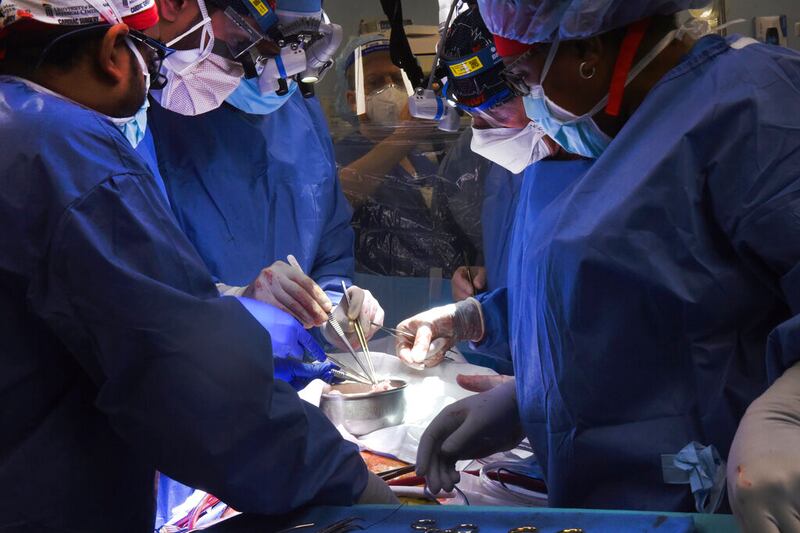The University of Maryland School of Medicine performed the world’s first animal-to-human heart transplant, with the recipient of the animal heart doing well several days after the surgery, per The Hill.
David Bennett, 57, was hospitalized and bedridden for the last few months. he was deemed ineligible for a conventional heart transplant at leading transplant centers like the university.
Bennett went through a transplant with a genetically modified pig heart, the only option available to him.
Per Fox News, the heart has 10 genetic modifications, including one inactivated gene that lowers aggressive human rejection and another inactive gene that stops the pig’s heart from growing.
“It was either die or do this transplant. I want to live. I know it’s a shot in the dark, but it’s my last choice,” he said.
Per BBC, the medical center was granted emergency authorization by the U.S. Food and Drug Administration for the surgery on New Year’s Day.
President and CEO of UMMC Bert O’Malley called the procedure a success. “We appreciate the tremendous courage of this live recipient, who has made an extraordinary decision to participate in this groundbreaking procedure to not only potentially extend his own life, but also for the future benefit of others,” he said in a statement.
Ethical issues around pig heart transplants
There are still big questions in the air about whether this type of surgery is ethical.
- Complications:
This is still an experimental surgery with high risks for patients. According to BBC, even transplanted human organs can get rejected, and with animal organs, the risk is much greater. “Consent for the imminently dying is important to get ... but it’s not enough,” said Art Caplan, a professor of bioethics at New York University, suggesting a research ethics committee weigh in, per CNN. “You want to have somebody else say, ‘Yes, we agree’ this isn’t a crazy, too risky thing to try.’ “
- Animal rights:
This surgery has sparked a debate, with animal rights groups like People for the Ethical Treatment of Animals strongly opposing the treatment method, calling it “unethical, dangerous and a tremendous waste of resources that could be used to fund research that might actually help humans,” according to a statement.
- Religion:
How does this choice affect those who are Jewish or Muslim, the two religions that have strict rules regarding the animal? According to the BBC, Dr. Moshe Freedman, a senior London rabbi who sits on the UK Health Department’s Moral and Ethical Advisory Group, said that the Jewish religious laws prohibit raising or eating the animal but receiving a pig heart is “not in any way a violation of the Jewish dietary laws.” As for Islam, the use of the animal is permitted if it saves someone’s life.


